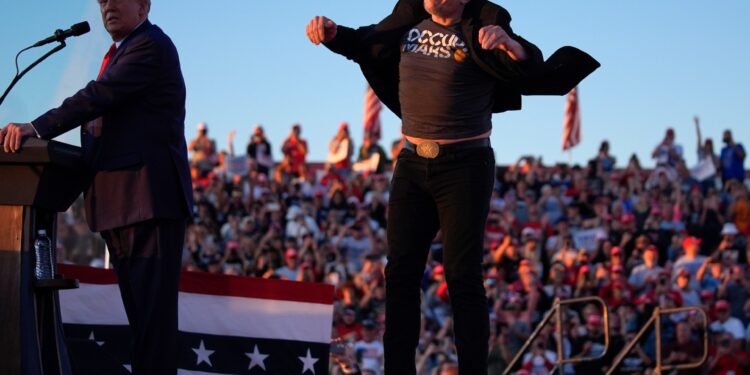In a controversial move, Elon Musk, the well-known billionaire, launched a lottery scheme for registered voters in swing states in the United States, which raises legal questions.
Musk offered to pay $47 to every registered voter who signs a petition supporting freedom of expression and the right to bear arms, which are rights protected by the US Constitution.
On October 19, Musk announced that signatories would be entered into a daily drawing for a $1 million prize until Election Day on November 5. This raffle is being run by a pro-Trump political action committee (PAC), to which Musk has contributed approximately $75 million.
Musk’s offer could cost him about $18 million just in lottery checks, plus small payments to signers and referrals, according to a report in The Economist. The goal of this scheme, according to PAC sources, is to boost support for Trump in swing states.
According to The Economist, the number of Republicans registered to vote in Pennsylvania rose to about 28,000 people in the last week of registration, more than double the number of Democrats.
Legal doubts
The Economist says there is a legal debate over whether Musk’s offer violates federal election laws. According to Richard Briffault, a law professor at Columbia College, the timing of the lottery launch — just 3 days before Pennsylvania’s registration deadline — indicates an intent to get people to register to vote, which may be in violation of the law.
For his part, Rick Hasen, a law professor at the University of California, told The Economist, “Once you start paying money as an incentive to register, it is considered a violation of federal law.”
The newspaper notes that, in addition to Musk’s plan, there are other cases that have sparked legal controversy. For example, Cards Against Humanity made a similar offer, offering up to $100 to people who did not vote in the 2020 election if they apologized and announced their intention to vote this year. Such offers raise questions about whether they could be considered bribery of voters.
While some analysts believe that these plans may raise legal challenges, Briffault points out that any legal challenges may not come in time to influence the election results. “Nothing like this has ever happened before, and no one knows the final answer,” Briffault said.
Musk had previously stated how concerned he was about what he saw as a threat to the freedom of the Western world, noting that he became involved in politics not out of personal desire, but rather out of his conviction of the necessity of protecting the future. While The Economist reported that Musk had been promised a position in the future Trump administration.



